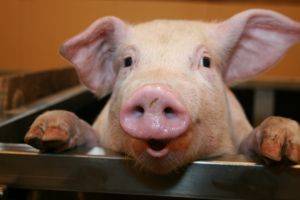Belgium: More Pork, Less Beef
The Belgian pig sector is recovering from the shock caused by African swine fever (ASF). On the other hand, beef production is declining.
After last year's decline, Belgian pig farmers increased their herds again by 2.2% to 6.2 million heads, the best result in five years. Thanks to a contingency plan, the Belgian MEAT industry has handled the pandemic relatively safely, surpassing the previous year's slaughter figures by four percent to 11.15 million pigs. As a result of the increase in slaughter weight, pork production increased by 5.8% to 1.1 million tons. This is the latest information from the Flanders Agricultural Marketing Board (Vlam).
Thanks to a high degree of self-sufficiency (220%), Belgian pig production is highly export-oriented. The bureau explains that despite the CORONAVIRUS pandemic and the outbreak of ASF, 792,276 tons of pork were exported from Belgium in 2020. This is 2.1% more than a year ago.
According to Vlam, exactly 90% of EXPORT volumes, or 714,739 tons, are sold in intra-Community trade. The ranking of the most important EU destinations is traditionally headed by Germany. However, the Federal Republic reduced import volumes by 8.5% to 208,096 tons in 2020. While export volumes to Poland stabilized at about 195,313 tons the previous year, exports to the Netherlands showed an increase of almost nine percent. up to 101,379 tons
On November 20, 2020, the EU Commission declared Belgium free from ASF. A month later, the World Organization for Animal HEALTH (OIE) confirmed Belgium's ASF-free status. Some third countries have opened the way in advance for the import of Belgian pork thanks to the principle of regionalization. As a result, Belgian exports to third countries increased by 7.3% in 2020 to 77,537 tonnes.
The new third country, the UK, immediately took first place in the ranking of the most important third country customers with a volume of around 25,700 tons. This is followed by Hong Kong with 11,321 t (+ 14.4%) and Côte d'Ivoire with 10,112 t (+ 37%).
Unlike pig production, Belgian livestock production recorded a 1.7% decline in 2021 to 2.33 million heads, according to the official study. 783 thousand heads of cattle were sent for slaughter, which is 6.6% less than in 2019. As a result, the volume of beef produced fell by 3.5% to 255,000 tons.
Belgian meat suppliers sold 158,767 tonnes of beef worldwide in 2020, down 7.6% from the previous year. Almost 90% of Belgium's foreign trade in beef, or 140,853 tonnes, is with the EU-27 countries, the agricultural marketing agency said. Thus, intra-Community trade volumes decreased by 10% compared to 2019. The main buyer, the Netherlands, purchased 49,243 t, which is significantly less (-17.2%) than a year ago during the pandemic. At the same time, France's import requirements fell by three percent to 37,210 tons. Germany also reduced volumes by 9.6% to 24,671 tons.
On the other hand, Belgian beef is increasingly popular in third-country markets, with exports up 16.8% to 17,914 tons. The most important buyers are Ivory Coast, Ghana and the UK.

